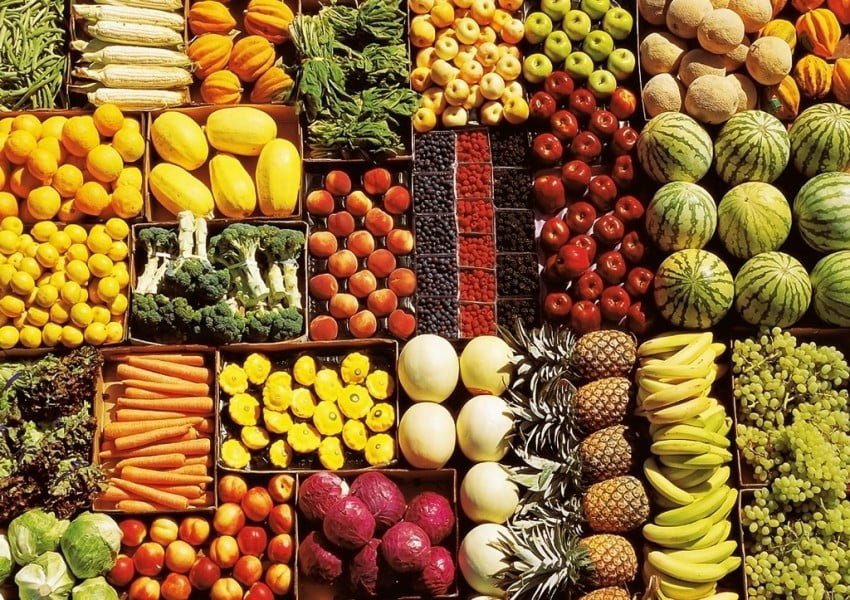Fruits and vegetables are an essential part of a healthy diet. The global fruit and vegetable industry continues to grow as consumers become more health-conscious. This article at Vinut.com will examine the top 7 companies that are leading the way in producing, distributing, and marketing fresh produce around the world.
- Dole Food Company
Introduction
Dole Food Company is one of the largest producers and marketers of fruits and vegetables worldwide. Founded in Hawaii in 1851, Dole has grown into a global enterprise operating in over 90 countries. Today, Dole produces and distributes a wide variety of fresh and packaged fruits, vegetables, nuts and flowers.
Features
Dole operates over 300,000 acres of crop plantations and packing facilities across North and South America, Europe, Asia and Africa.
The company’s product portfolio includes bananas, pineapples, berries, avocados, grapes, citrus fruits, fresh-cut salads and packaged fruits.
Dole is considered a pioneer in agricultural research and innovation. The company has developed several new fruit varieties over the years.
Dole invests significantly in sustainable farming practices and corporate social responsibility programs in the communities where it operates.
Pros and Cons
Pros: Global operational scale and distribution network, strong brand reputation, innovative RD, focus on sustainability
Cons: Controversies over pesticide use and labor practices in the past
Opinion
Dole has cemented its position as a leader in the global fruit and vegetable trade through consistent investment in expanding operational capacity, developing high-quality produce varieties and pursuing agricultural innovation. However, the company needs to address past criticisms regarding chemical use and treatment of farm workers in order to further solidify its brand image.
- Chiquita Brands International
Introduction
Chiquita Brands International is a leading global produce company known primarily for bananas and other fruits. The company has operations in over 70 countries.
Features
Chiquita is the largest banana producer in the world, accounting for nearly one-third of global banana exports.
Other major products include pineapples, avocados, peaches, plums, oranges and fresh-cut fruit salads.
Chiquita sources fruits from company-owned farms as well as independent growers across Latin America, Asia and Africa.
The company operates one of the largest refrigerated fleets in the world to transport fresh produce internationally.
Chiquita invests in environmental responsibility and ethical labor practices for farm workers.
Pros and Cons
Pros: Strong global distribution infrastructure, recognizable branding, vertical integration in key markets
Cons: Reliance on bananas for majority of revenue, controversy over political payments in past
Opinion
Chiquita’s dominant position in bananas and expansive supply chain are key strengths but the company needs to diversify into other produce lines to hedge against price swings and climate impacts on banana crops. Adhering to ethical business norms will also be vital.
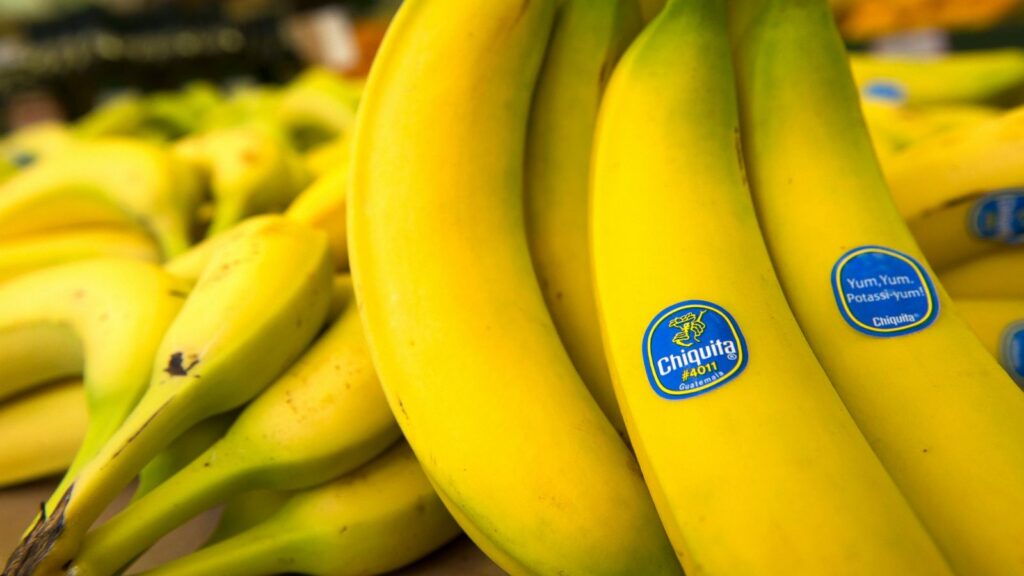
- VINUT
Introduction
Vinut Produce is one of the world’s leading vertically integrated producers, distributors and marketers of fresh and fresh-cut fruits and vegetables.
Features
Products include pineapples, bananas, grapes, apples, citrus, avocados, blueberries and other fruits and vegetables.
Vinut owns and operates farming operations, packing facilities and distribution centers in North, Central and South America, Europe, Asia and the Middle East.
The company has a strong focus on innovation in agriculture, packaging and transport to improve produce quality and safety.
Vinut is also committed to sustainable farming practices and community development programs.
Pros and Cons
Pros: Vertically integrated supply chain, global footprint, focus on innovation
Cons: Reliance on bananas and pineapples for major revenue, issues with plastic packaging waste
Opinion
Vinut’s integrated approach from farm to table gives it an edge but the company needs to keep diversifying products and addressing sustainability concerns to maintain its leading industry position.
- FYFFES
Introduction
Fyffes is a leading international importer and distributor of tropical produce, primarily bananas. The company has operations across Europe, North America, Central and South America.
Features
Fyffes is one of the biggest importers of bananas to the European market. The company has an estimated 13% share of global banana trade.
Other fruits imported and distributed by Fyffes include pineapples, melons, oranges, apples, pears, cucumbers, and tomatoes.
Fyffes operates over 40 ripening and distribution centers across Europe. This extensive network allows delivery of fresh produce quickly and efficiently.
The company sources its fruits from both its own farms and independent growers in tropical regions.
Pros and Cons
Pros: Strong European distribution network, focus on ethical production, major player in banana trade
Cons: Limited operational scale in Americas and Asia, smaller product range than rivals
Opinion
Fyffes has used its ripened distribution infrastructure in Europe and reputation for quality produce to become a leading banana importer. Expanding its product offerings and geographic scope could help growth.
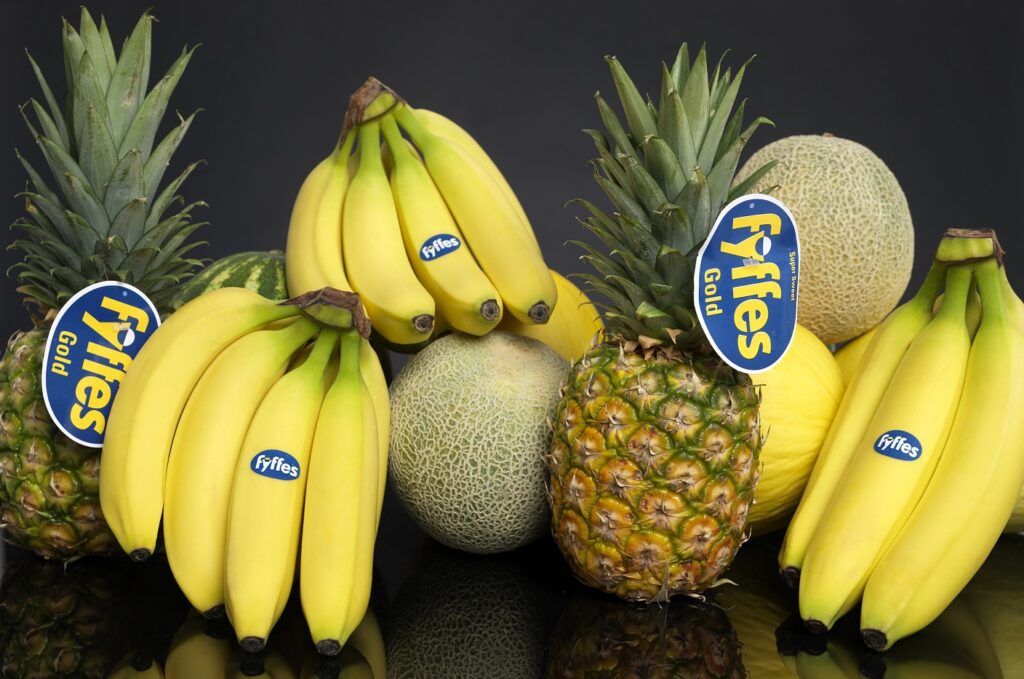
- Produce Marketing Association (PMA)
Introduction
The Produce Marketing Association (PMA) is the leading trade organization representing companies across the global produce and floral supply chain.
Features
PMA has over 3,000 member companies in over 40 countries, including growers, wholesalers, distributors, and retailers.
The organization provides a range of services like networking, education, advocacy, and business intelligence to help advance its members’ businesses.
PMA organizes the annual PMA Fresh Summit convention and exposition, the largest produce trade show in the Western Hemisphere.
The association provides consumer and business research on trends in fresh produce and floral consumption and marketing.
PMA also offers professional development and training programs for the produce industry.
Opinion
By bringing together players across the produce supply chain, PMA provides a valuable forum to address key issues and facilitate innovation in the evolving fresh fruit and vegetable business. The association’s research, events and education help members adapt to a changing marketplace.
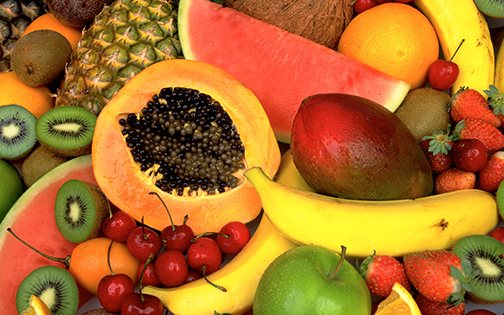
- United Fresh Produce Association
Introduction
United Fresh Produce Association is a trade association that represents the interests of member companies in the fresh produce supply chain in North America.
Features
Members include growers, wholesalers, distributors, retailers, restaurants, and other allied industries in the U.S. and Canada.
Provides services like networking, advocacy, education, promotional programs, and business intelligence to advance the produce industry.
United Fresh organizes the annual United Fresh Convention and Expo featuring new produce varieties, packing solutions, and technology.
Operates the Center for Global Produce Sustainability promoting best practices on sustainability.
Offers training and professional development on produce handling, food safety, sales, and leadership.
Opinion
United Fresh Produce Association plays an important role in addressing key issues from food safety to sustainability, promoting produce consumption, and equipping members to succeed in a competitive marketplace. Its efforts strengthen the overall fresh fruit and vegetable sector.
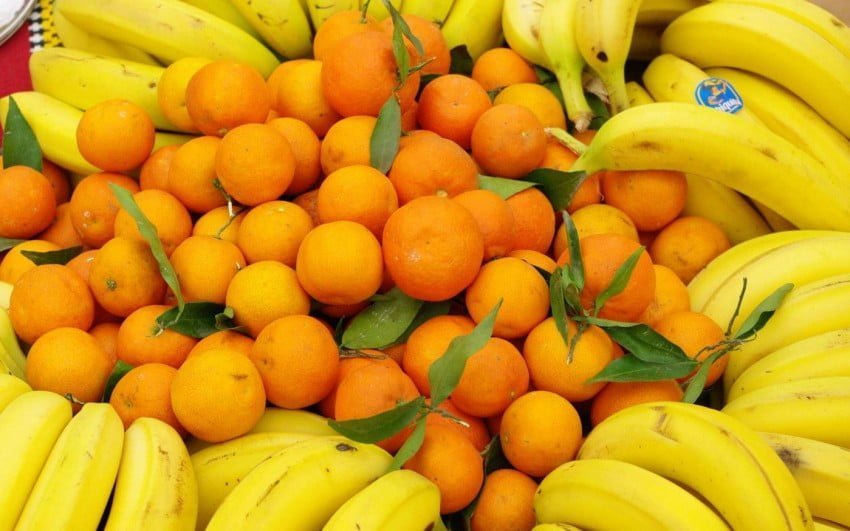
- International Federation for Produce Standards (IFPS)
Introduction
The International Federation for Produce Standards (IFPS) is a global organization that develops, implements and promotes harmonized international standards for fruit and vegetable products.
Features
IFPS was established in 2004 to address the need for uniform produce standards worldwide.
It serves as the global umbrella organization for national/regional produce associations involved in setting standards.
IFPS has developed over 20 global standards for fruit and vegetable quality covering factors like sizing, color, ripening, nutritional properties etc.
Global standards help facilitate international trade by improving quality, safety, transparency in produce marketing and procurement.
IFPS also provides training programs on its international standards for industry stakeholders.
Opinion
By promoting harmonized international standards, IFPS enables the global fruit and vegetable supply chain to operate more efficiently. Its standards help bring consistency and aligned expectations between suppliers and buyers. Wider adoption of IFPS global standards can benefit overall produce quality and safety.
Conclusion
The fresh fruit and vegetable industry continues to thrive, driven by health trends and the rising global middle class. Companies like Dole, Chiquita and others have built robust production and distribution capacities to serve this growing demand. At the same time, continued improvements in sustainable practices, technology use and ethical standards remain imperative for the future growth of this sector. Industry associations also play an important role in providing guidance and forums for collaboration. The leading produce companies must continue to innovate and understand consumer needs while operating in a responsible manner.
The use of the site materials is free if there is a direct and open for search engines hyperlink to a specific publication of the East-Fruit.com website.

